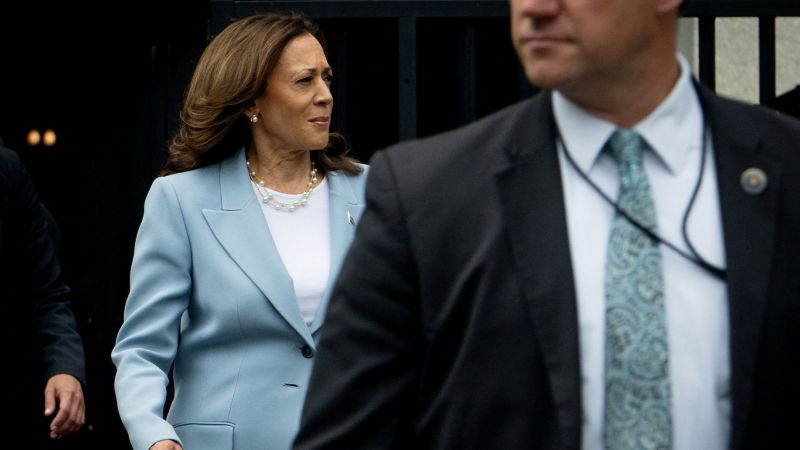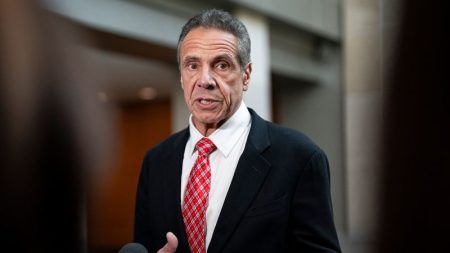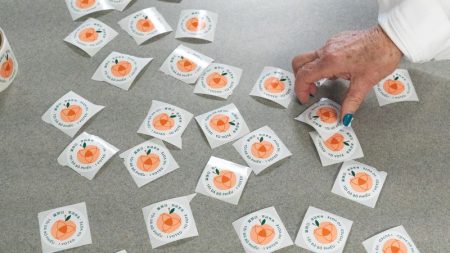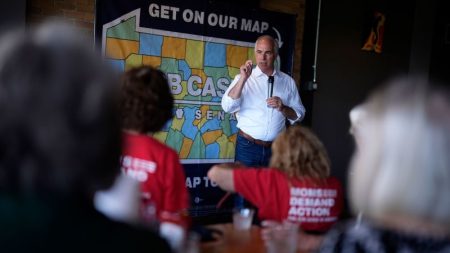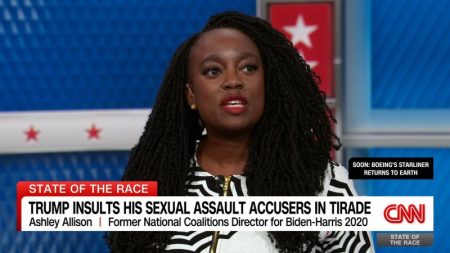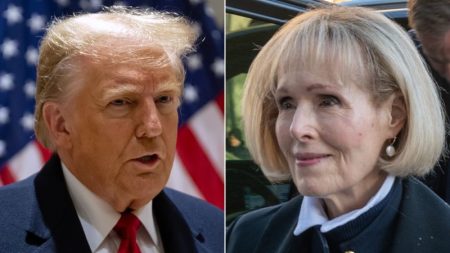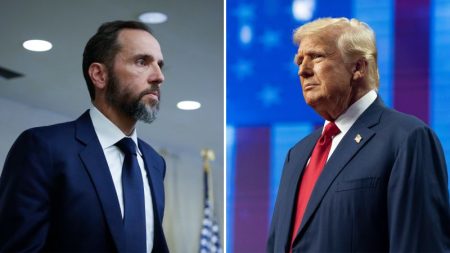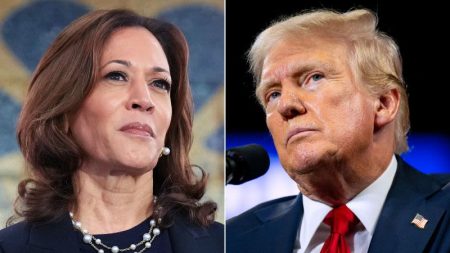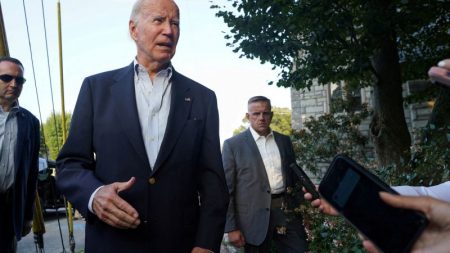Leaps of faith aren’t Kamala Harris’ style. But she’s about to have to take one.
The vice president likes to take her time with decisions. However much data she has, she tends to ask for more. Go over it all again and again. Then check again if there’s more data.
Heading into a weekend of interviews at the Naval Observatory with running mate prospects for a choice that will shape her campaign and the Democratic Party – and potentially her presidency and the country – she doesn’t have that luxury.
Multiple people who have worked with Harris tell CNN they doubt that she’s fully comfortable with the rush as she does her final interviews.
But they agree that it’s just another aspect of this accelerated and abbreviated campaign that may end up benefiting the vice president by limiting opportunities for the kind of pitfalls that have plagued her in the past.
“It’s like a European-style election!” Harris joked to donors in Houston about the sprint to Election Day, according to one person who heard her at the event Wednesday night.
Running mates often become political afterthoughts once they’re picked. But the Harris campaign knows that with so many Americans still getting to know her, her choice will offer a key and early window into who she is, how she thinks, what sort of politics she is going to practice and her sense of what the electoral weaknesses she needs to account for are.
Outside advisers have already chimed in with suggestions for how to introduce the pick to keep the excitement and good vibes going, particularly if Harris ends up in a potentially awkward position of not going with Pennsylvania Gov. Josh Shapiro, even though the planned first stop Tuesday of the new ticket’s battleground blitz is in Philadelphia, miles from where the governor grew up and started out as a local politician. One idea is to repeat what Joe Biden’s campaign did in 2020 – putting out a video of his call to tell Harris she was his choice. Another is for Harris and her chosen candidate to make a surprise appearance after the news breaks.
Staff for the running mate – including one of the former Biden aides who helped guide Harris through her own transition onto the ticket four years ago – have already been picked. Veterans of the process jokingly call it the “prize patrol,” like the Publishers Clearing House TV ads, when a crew suddenly shows up at the door informing people they’ve won millions.
But as for whose door they’ll be showing up at, several people familiar with the current process say Harris and her small circle of advisers are trying to parse who could best help her win and to fit each of the candidates into the larger future-oriented fresh-start frame that she’s laid out herself over the past two weeks.
“This is a decision that is not just a campaign decision,” Transportation Secretary Pete Buttigieg said in an unrelated interview with CNN last week. “This is a decision that the whole country ends up being bound by.”
Speaking to reporters earlier this week in Pennsylvania, Shapiro – like Buttigieg and others being considered by Harris – ducked directly commenting on his own role in the process.
“The vice president has a very deeply personal decision to make right now. Who she wants to run with. Who she wants to govern with. And who can be by her side when she has to make the toughest decisions for the American people. I trust she will make that decision on her own terms when she is ready,” he said.
Then asked on Friday if he would be in Philadelphia on Tuesday when Harris appears with her choice, Shapiro said, “I hope to be.”
As she reaches a decision, Harris is thinking about her own process that led Biden to her four years ago. She is thinking about what, in her mind, went right and what went wrong with their dynamics over the past three-and-a-half years. She thinks often about resilience: the glare that was on her as vice president and what she endured – especially over the nightmarish July for Democrats when Biden resisted and then ultimately withdrew from the race – and now she will have to consider if others can withstand similar scrutiny.
Harris will also be thinking about relationships, especially because she doesn’t have much of a connection with any of the men who have made it to the final six. Being part of the same promising young politician fellowship in 2006 with Shapiro or bantering with Buttigieg when he played Mike Pence at her debate prep four years ago is as deep as the relationships go.
The others in contention don’t go much past the level of handshakes with Harris, though she did have Shapiro, Minnesota Gov. Tim Walz, Illinois Gov. JB Pritzker, Kentucky Gov. Andy Beshear and several other governors over to her residence for what became a gripe session about the Biden campaign in February. She has served in the Biden administration with Buttigieg, but their relationship wasn’t always smooth. She was still attorney general in California during Beshear’s first year as Kentucky attorney general, though she was mostly occupied with running for Senate then. She overlapped for just two weeks in the Senate with Arizona’s Mark Kelly, though that included January 6.
The way Biden made a point of welcoming her into his family immediately after she was picked made an impact on Harris. With relatively short interviews to go off this time, the input of her husband, Doug Emhoff, often overlooked as a key supportive voice, will help guide who she thinks can fit in the same way.
“I watched her relationship with Biden,” said Cedric Richmond, the former Louisiana congressman who has become an informal adviser to Harris and has stayed in close touch over the past two weeks. “You have to have somebody who, No. 1, shares values, but No. 2, that you have a rapport with – because they’re going to be out running their own thing and doing their own thing, and you have to trust that they know you.”
Richmond said that from what he saw Harris take away from her time with Biden, this is about more than getting along at potential weekly lunches in the West Wing.
“They know your voice, they know your priorities, they know your values, they know your positions, and they’re going to execute,” he said. “So it’s very, very important to have somebody who you have a great relationship with.”
Pros and cons and a pragmatic mindset
Over the coming days, Harris, with her prosecutor-trained mentality, will be running pros and cons, testing out theories and looking for what aides can tell her about qualities in running mates that have actually changed votes in the past.
She has talked to Biden. She has talked to Barack Obama. Polling and focus groups have been conducted. Sample videos to play have been requested. Hours and hours of interviews with aides, on top of thousands of pages of hastily assembled documents, and in some cases with detailed follow up questions, have been coalesced by a group of lawyers led by former Attorney General Eric Holder and former White House counsel Dana Remus into briefing books.
Harris and her team know, though, that there are limits to what polling can reliably say over just two weeks, particularly given the historic upheaval the race has just gone through. They know there are questions, particularly about finances and deep dives into their backgrounds, that even the prospective choices themselves might not remember to bring up amid this rush. A chunk of the message testing on prospective choices has come from their TV appearances in the past two weeks of hurried public auditions.
Several involved with the process, though, say that they have walked away with one clear sense from the Harris team: no surprises. Nothing that could derail the honeymoon Harris is trying to keep going. Nothing that could give them their own version of JD Vance’s clunky start that they have been watching carefully or the clear tensions that have set in between some in Donald Trump’s and his running mate’s orbits.
Advice has been streaming in. Everyone who can get in the ears of anyone near Harris – whether that is her government chief of staff Lorraine Voles or her brother-in-law Tony West or campaign chair Jen O’Malley Dillon, who helped Biden pick Harris in 2020 – has been weighing in with advice.
Some have been explicit in pitching a specific choice. Some have pantomimed subtlety, like just laying out the importance of winning Pennsylvania or Arizona. Some have tried to be reassuring, urging aides and advisers to remember that the pick probably won’t matter much politically, especially in this sprint of a race against Trump.
At almost exactly this point in the summer of 2020, when Biden confided to Obama that he was worried that given the lingering bad feelings about how Harris had attacked him during their first primary debate, the two might not be able to have the same good relationship that Biden remembered having with Obama.
Obama reminded his former vice president that they had not gotten along well at first. And, he stressed to Biden, none of that was nearly as relevant as who would help him win – because with Trump as the opponent, Democrats had to win.
Harris is less emotionally driven than Biden. And she knows, as a woman of color leading the Democratic ticket, how much is riding on her not to be seen as failing in this moment.
“She will recognize that she’s in a tough race, and she needs to pick the best running mate that will help her win,” said Rep. Adam Schiff, a California Democrat and current candidate for Senate who has known Harris for years. “I think it’s going to be less about who does she have the best chemistry with and more about who has the best chance of helping the ticket.”
CNN’s John King contributed to this report.
Read the full article here
